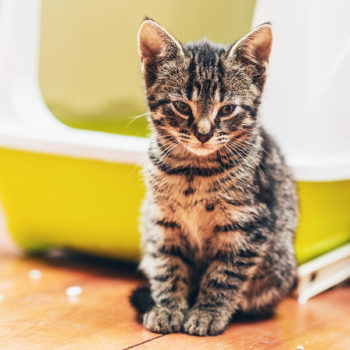When cats stop using their litter box, and they get a clean bill of physical health from their veterinarian, there’s one piece of advice that almost universally comes next: Keep your litter box clean. But what does that mean from the cat’s point of view?
The smell of a cat box is probably the main metric our human noses use to decide if it’s dirty. Cats, however, judge litter box cleanliness – or at least, appeal – by how many stool-like objects are in it. And it doesn’t matter if those poops are theirs or another cat’s, either. In fact, they don’t really care if they’re real poop or just look like it.
In a study published last month in the journal Behavioural Processes, researchers wrote:
The preference to eliminate in unused litter boxes also does not appear to be influenced by malodor, as the presence of the odor of urine or feces did not result in a preference over a control litter box. Elimination preferences do appear to be influenced by physical/visual obstructions. Cats preferentially avoid litter boxes with obstructions, faux-fecal obstructions were preferred to faux-urine clumps, and results intensify as amount of obstruction increases. It is likely that this aversion to physical/visual obstructions was due to the increased difficulty in expressing the behaviors in their natural elimination sequence. Results emphasize the importance of litter box maintenance as the key factor in promoting proper litter box use. This may be especially important in multi-cat households, due to the increased amount of eliminated materials.
In the study, they also looked at the impact of sharing a litter box in a multi-cat household, and surprisingly found that sharing a litter box didn’t have much impact on a cat’s preference.
So the general advice to keep all litter boxes clean is accurate, but the advice to cat owners should be to trust their eyes rather than their nose when deciding if a box is clean or not.
The complete study is available open access, and can be read and downloaded at the link below.
J.J. Ellis, R.T.S. McGowan, F. Martin, Does previous use affect litter box appeal in multi-cat households?, Behavioural Processes, Volume 141, 2017, Pages 284-290, ISSN 0376-6357, http://dx.doi.org/10.1016/j.beproc.2017.02.008.

